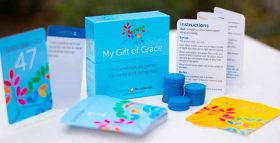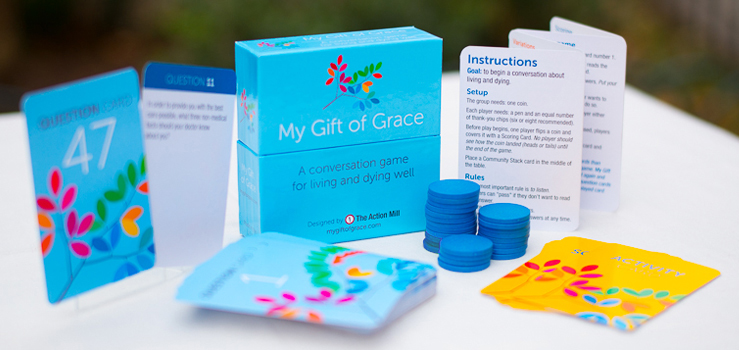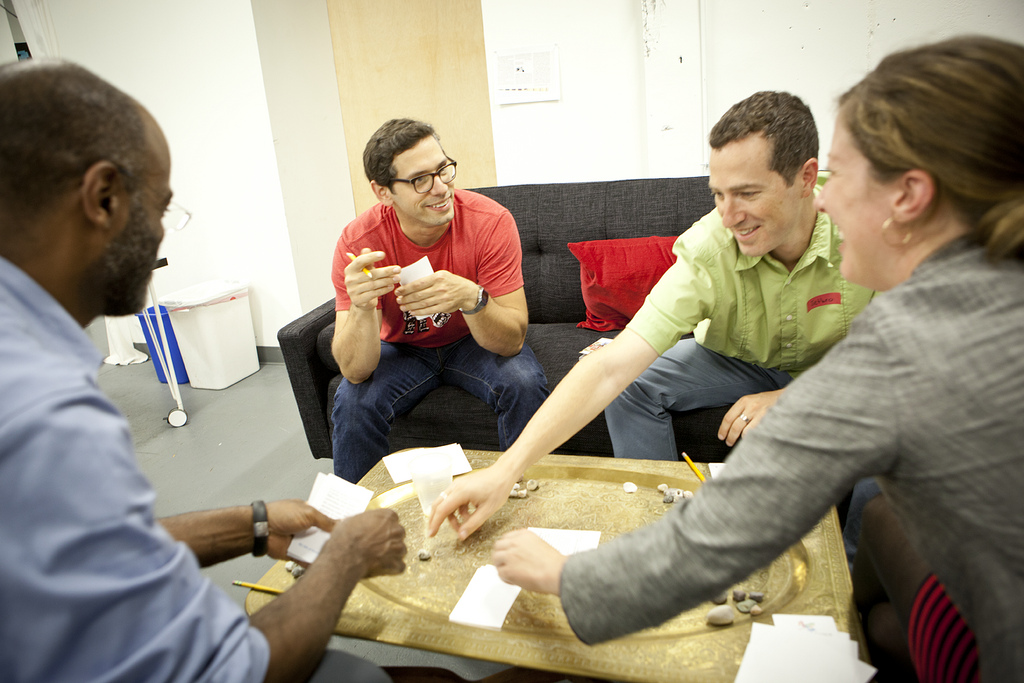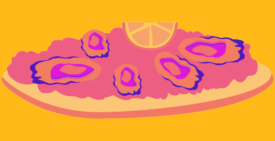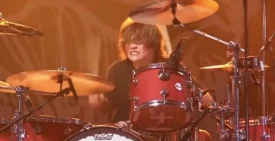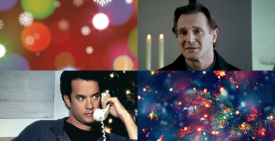Many of us are in denial that we’ll eventually be slammed with unexpected health issues – some of them irreparable. In turn, our energy is spent thinking of anything but what we’d want for ourselves in those cases. The Action Mill, a Philadelphia- and New York-based design firm focused on improving end-of-life care, is trying to get people more comfortable with these topics. Its new card game, “My Gift of Grace,” prompts people to ponder the tough stuff out loud. Modern Loss’ Rebecca Soffer recently spoke with Nick Jehlen, a partner in the firm, about how dealing head-on with death, dying and grief topics can actually be — wait for it — fun.
Bonus! Modern Loss readers get 10% off their orders until July 31, 2014 by using the code “ml2014” when they check out at mygiftofgrace.com.
“A game about death” isn’t the first phrase that comes to mind when one thinks of a fun evening. How can you convince people this is a worthwhile (and not depressing) use of their time?
The funny thing is people are used to playing games about the economy (Monopoly), murder (Clue), war (Risk), and all sorts of other topics that don’t sound fun. That’s what makes a game a game: It’s much more than what you read in the instructions.
So, we emphasize the game in “game about living and dying well” and suggest people try it out for a few minutes. That’s the best way to actually understand that My Gift of Grace is what most other games are: challenging and fun. Most people are drawn in quickly, and they wind up telling their friends about it.
What led you to create this project?
We’d been exploring work in end of life issues for a while, but the catalyst moment for me was interviewing a hospice nurse about two years ago. She told us about the awful things that can happen when you haven’t been clear with your family about what you want at the end of your life. And that families that had had just one conversation before they were in crisis were much better prepared to manage these difficult decisions together.
After that, we teamed up with Dr. Karl Ahlswede and looked for situations where families were already having conversations. Playing card games on holidays and vacations jumped out as a great opportunity.
Can this game help people dealing with loss? What about those who have never dealt with loss?
Yes. The game adjusts itself to a variety of needs and experience, and that’s important because we all come at this topic with different histories, fears and hopes. That’s one of the things we’re most proud of: The game helps people with widely different experiences have a meaningful conversation.
How did you come up with the questions?
By interviewing experts in palliative care and hospice nurses, and sitting around talking with our friends and family about what they really wish they could talk about but were afraid no one would want to discuss with them. We tested the questions on our Kickstarter backers, who contributed a bunch as well.
My favorites are:
- Write your own epitaph in five words or less
- In order to provide the best care possible, what three non-medical facts should your doctor know about you?
- What music do you want to be listening to on your last day alive?
I’ve played the game dozens of times — my answers are different each time.
What’s behind the name?
“Gift” comes from Martha Keochareon, a nurse from South Hadley, Mass. who learned she had pancreatic cancer. She called her old nursing school and suggested they send over students who wanted to learn about hospice. This flipped our thinking on what people at the end of their lives need. Turns out, it’s the same thing the rest of us need: to feel useful and needed. To give.
“Grace” has to do with how people express what they want at the end of their lives: dignity, security, love. To us it’s about how we aspire to live our lives: connected to the people around us.
Who’s been buying the game since it was produced?
We’ve sold about 2,000 so far, some to hospice and healthcare professionals but most to individuals. They tend to be people who want to have this conversation but need a little help. That’s what the game is, really: permission to have a conversation and a structure to make it less scary.
The Action Mill focuses on improving end-of-life care. What other projects does your team do?
We partner with healthcare professionals to create simple tools that change behaviors around end of life issues – taking their expertise and turning it into simple behaviors that are easy to pass on to other staff.
Doctors, nurses, and home health aides are just like the rest of us in many ways: they struggle with how to talk about these topics. And, they’re very busy. I often get frustrated by dealing with the healthcare system, and healthcare professionals do, too. They want to provide care they can be proud of, and we often find that design can be applied in ways that help them do that.
How can good design factor into engaging people about potentially scary themes?
One of our favorite podcasts is 99% Invisible, which got its name from the idea that if design is done right, it is 99% invisible. Those things in the world around us that just work? Those are the great designs.
Most of the design work we do is about helping people be their best versions of themselves in a community of other people doing the same. You have to build with a general idea of where you’re going and trust your users to make something out of your work that is beautiful and unexpected. Watching people conquer their fears with a tool you designed is about the most satisfying thing I’ve ever experienced.
Working with such heady topics on a day-to-day basis requires some levity. Does your team inject humor into the process?
We design our workdays around supporting our co-workers. Laughter is part of it — and we laugh a lot — but so is sadness, fear and hope. We value those things above anything else because when you do, you create space for people to do really amazing and meaningful work.
Modern Loss readers can get 10% off their orders of My Gift of Grace until July 31, 2014 by using the code “ml2014” when they check out at mygiftofgrace.com. This interview has been edited for length and clarity.

